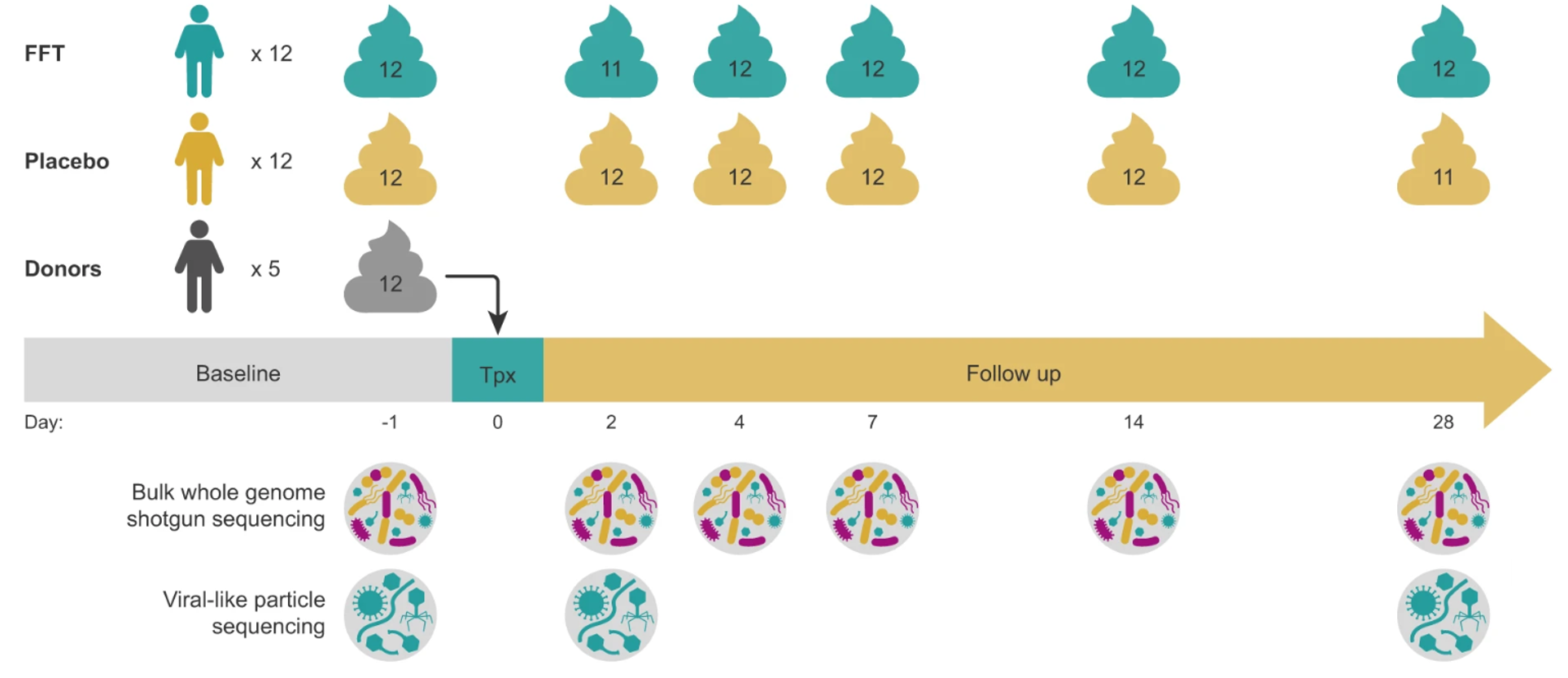
Overview of the faecal samples used for the bulk metagenomic sequencing (for bacteriome and phageome) and the metagenomic sequencing of the viral-like particles (VLP)
A double-blind, randomised, placebo-controlled clinical trial was conducted by a team in The Netherlands in order to assess the efficacy and safety of sterile faecal filtrate transplantation in individuals with metabolic syndrome.
Below are the main highlights of this fascinating study:
- Bacteriophages (phages) are known to influence microbial communities.
- Previous research indicates that faecal virome transplantation can reduce weight gain and improve glucose tolerance in obese mice.
- A double-blind, randomized, placebo-controlled pilot study was conducted with 24 participants having metabolic syndrome.
- Participants were divided into two groups: one received faecal filtrate transplantation (FFT) from a lean donor (n=12), and the other received a placebo (n=12).
- The study’s primary focus was on changes in glucose metabolism, with secondary focuses on safety and changes in the intestinal bacteriome and phageome.
- All participants (24) completed the study, and their data were included in the analyses.
- No significant differences were found in glucose metabolism changes between the FFT and placebo groups.
- The FFT was well-tolerated and there were no serious adverse events reported.
- A notable alteration in phage virion composition was observed two days post-FFT compared to the placebo, indicating more aggressive phage-bacteria interactions.
- The study concludes that gut phages can be safely administered to temporarily modify the gut microbiota in recipients.
You can read the full study here.
Stay tuned as Targeting Phage Therapy 2024 will cover all the most recent discoveries in the field.
